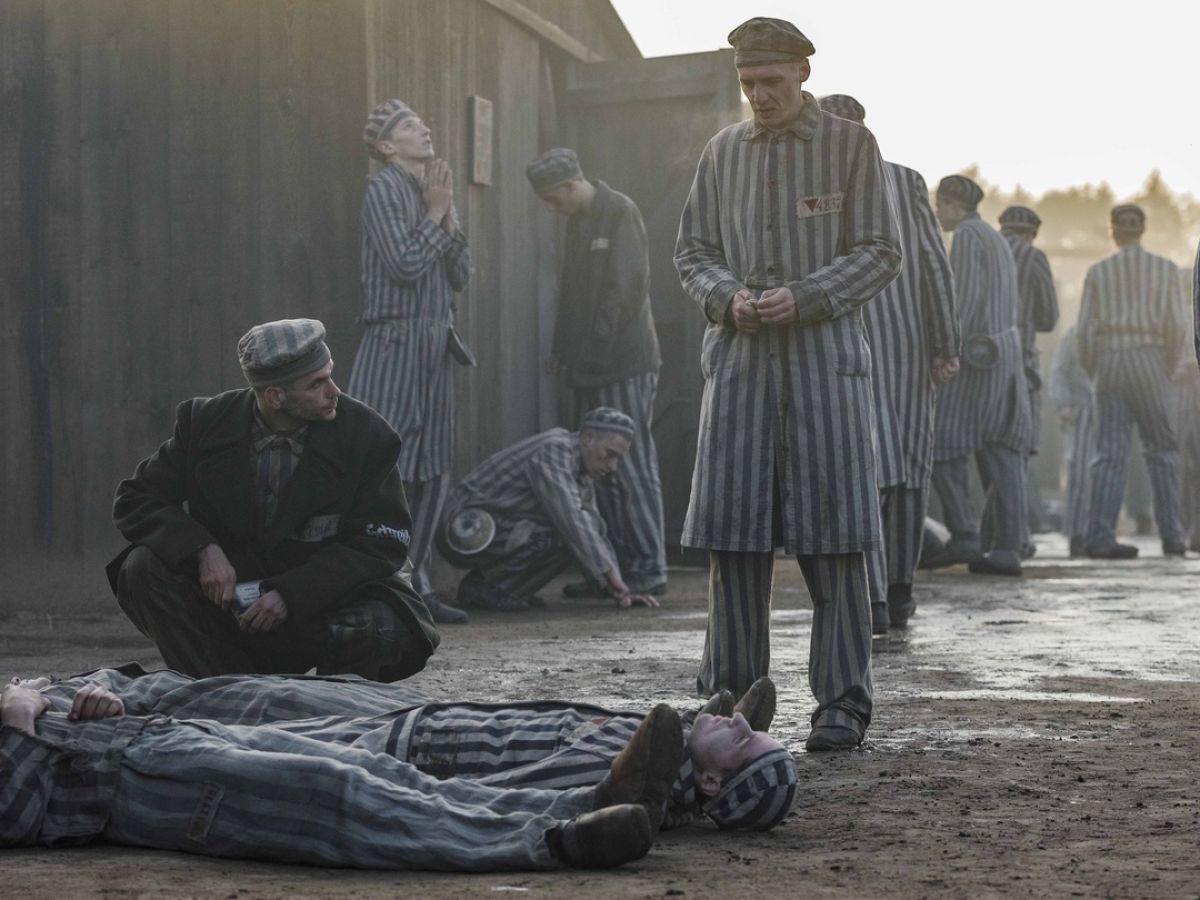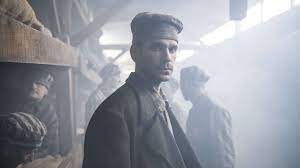
Before the term “Shoah” was coined, before “Holocaust” was became the worldwide term for the mass murder of European Jews, Gypsies, Slavs and homosexuals of many races, the “denial” was well-established.
Then, as now, Nazis pretended the murder of millions wasn’t happening. And the world, ready to believe human beings couldn’t do this to other human beings, clung to that denial. Even the International Red Cross was slow up on the uptake — tricked, fooled and conned by the German regime that carried out the slaughter.
“The Auschwitz Report” is a gripping, myopic and sober-minded Czech/Slovak co-production about two men who kept count of the “transports” coming in, noting how many were “blown…through the chimneys” of Auschwitz-Birkenau, and wrote it down.
They drew diagrams, maps of the complex.
They stole labels of Zyklon B, the pesticide developed from a banned WWI gas that Germans and their minions used to suffocate millions with infamous “German efficiency.”
And in 1944, they escaped and attempted to bring this news, their proof, to the world.
Slovak filmmaker Peter Bebjak, who did the thriller “The Line” and has numerous Slovak and Czech TV credits, hurls us into Auschwitz, into the harrowing existence of “scribes” Rudolph Vrba (Peter Ondrejicka) and Alfréd Wetzler (Noel Czuczor). No back story to speak of, just nightmares built on the waking nightmare of their borrowed time in this most infamous death camp of all.
Bebjak and his fellow screenwriters sketch in the people, Jews and Gypsies, a Franciscan friar (Jan Nedbal) and their Nazi tormentors (Florian Panzner, Lars Rudolph, Christoph Bach) and all but bury their characters and themselves in the vast, anonymous killing machine of Auschwitz-Birkenau.
Because that’s what this movie is about, a machine no one in the world would believe existed. Wetzler and Valer (Vrba’s real name was Walter Rosenberg) were a mismatched pair — one given to weeping and despairing, the other stoically cool and determined to succeed, to get word (in Czech, Slovak and English) of this place to the Allies so that “important people will send planes and blast this place into oblivion.”
With so many Holocaust stories, so many filmed accounts of the horrors of the camps, Bebjak found his fresh angle by focusing not just on the peril of the escapees — hidden under lumber palettes by fellow inmates — but of those threatened, tortured and summarily shot for not giving up their location.
The Franciscan — imprisoned for reasons never explained — is among those tormented by Lausmann (Panzner), another in a long line of Germanic sadists, this one given to lashing out on hearing he’s lost a son on The Russian Front by having prisoners buried up to their necks so that he can bludgen them at will, or ride his horse over their exposed skulls.
Lausmann and other officers keep the inmates of the same barracks as the escapees outside, standing, starving in the April cold, for a day and night as he interrogates, beats and even shoots those selected for questioning.
No one talks.


“The Auschwitz Report” includes some wrenching choices the men in that barracks face, and an emotional rendition of the unthinkable — two men escaping from the slaughter, getting help from locals (by the spring of 1944, civilians had to figure the jig was up for the Aryan goose-steppers) and trying to convince a skeptical Red Cross official (John Hannah of “Four Weddings and a Funeral”) of their proof.
The film’s third act is somewhat anti-climactic, even if it does have the novelty of being among the few depictions of how hard it was to convince the world this was going on.
Czuczor, Ondrejicka and Panzner sketch in their characters as best they can. But this Slovakian submission for the Best International Film Oscar focuses more on broad strokes, on recreating horrific history and on doing it justice.
That narrow focus is both a strength and a shortcoming of “The Auschwitz Report.” Yet it’s still a piece of “never forget” history we haven’t seen before, and its closing credits — a sea of intolerant voices, from Hungary, Brazil and Mar-a-Largo — underscore the fear that “it’s happening again” and the need to change history, while we still can.
Rating: unrated, graphic violence, nudity
Cast: Noel Czuczor, Peter Ondrejicka, Florian Panzner, Jan Nedbal, Lars Rudolph, Christoph Bach and John Hannah
Credits: Directed by Peter Bebjak, scripted by Peter Bebjak, Tomás Bombík and Jozef Pastéka, inspired by the memoir by Alfred Wetzler. A Samuel Goldwyn release.
Running time: 1:34

